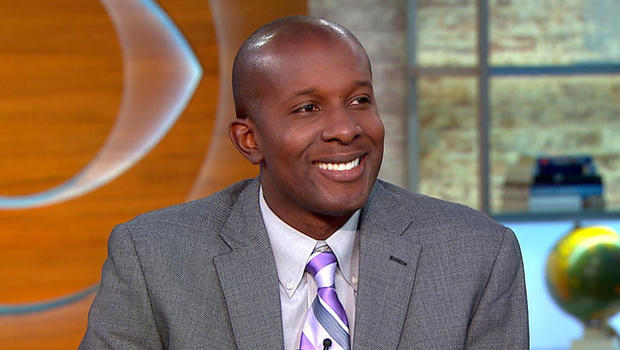
Click here for the NYTimes article discussion.

Click here for the NYTimes article discussion.

When Damon Tweedy begins medical school, he envisions a bright future where his segregated, working-class background will become largely irrelevant. Instead, he finds that he has joined a new world where race is front and center. The recipient of a scholarship designed to increase black student enrollment, Tweedy soon meets a professor who bluntly questions whether he belongs in medical school, a moment that crystallizes the challenges he will face throughout his career. Making matters worse, in lecture after lecture the common refrain for numerous diseases resounds, “More common in blacks than in whites.”
Black Man in a White Coat examines the complex ways in which both black doctors and patients must navigate the difficult and often contradictory terrain of race and medicine. As Tweedy transforms from student to practicing physician, he discovers how often race influences his encounters with patients. Through their stories, he illustrates the complex social, cultural, and economic factors at the root of many health problems in the black community. These issues take on greater meaning when Tweedy is himself diagnosed with a chronic disease far more common among black people. In this powerful, moving, and deeply empathic book, Tweedy explores the challenges confronting black doctors, and the disproportionate health burdens faced by black patients, ultimately seeking a way forward to better treatment and more compassionate care.”

Click here – Time magazine book excerpt
White privilege can be a tricky thing for people to wrap their heads around. If you’ve ever called out white privilege before, chances are you’ve heard responses like “But I’m didn’t ask to be born white!” or “You’re being reverse racist.”
The next time that happens, just show the nay-sayer this succinct comic by Jamie Kapp explaining what white privilege is — and what it isn’t.
Click through for the full comic!

An interesting piece by Parul Sehgal which looks at cultural ‘‘cross-pollination’’/‘‘appropriation” throughout history, particularly referencing contemporary examples in pop culture and the resulting heated debate. Sehgal acknowledges the offensive nature of many of these cases, yet considers the dangers of restricting such exchanges.
“It’s a truth only selectively acknowledged that all cultures are mongrel.”
“It’s a seasonal controversy that attends awards shows, music festivals, Halloween: In a country whose beginnings are so bound up in theft, conversations about appropriation are like a ceremonial staging of the nation’s original sins.”
“…it has never been easier to proceed with good faith and Google, to seek out and respect context. Social media, these critics suggest, allow us too much access to other people’s lives and other people’s opinions to plead ignorance when it comes to causing offense….Seen in this light, ‘‘appropriation’’ seems less provocative than pitiably uninformed and stale. ”
“…writer Tom Bissell said ‘‘there would be fewer wars’’ if more novelists allowed themselves to imagine themselves into other cultures. It’s a seductive if utterly unverifiable claim.”
—
Click here to read the full article.
Is the contemporary preoccupation with cultural appropriation just part of this generation’s “outrage culture”, or is there legitimate cause for concern?
In your opinion, what is the difference between appropriation and appreciation? Where is the distinction between “colonizing” an identity and celebrating/sharing cultural experiences?
Sehgal talks about the evolution and globalization of hip-hop, which arguably — taking into account Korean b-boy champions, the Russian twerking phenomenon, and Iggy Azalea — has lost its identification with race. In this ever-shrinking world, we are exposed to and influenced by a diverse range of peoples; is it even possible to avoid the intermingling of cultures?
Are there any foreseeable merits to cultural appropriation/exchange? Can it function to bring us closer together as a people?


Ta-Nehisi Coates explores how mass incarceration has affected African American families. “There’s a long history in this country of dealing with problems in the African American community through the criminal justice system,” he says in this animated interview. “The enduring view of African Americans in this country is as a race of people who are prone to criminality.”


Sometimes a picture is truly worth a thousand words. For those of us from the ‘multiracial’ or mixed race community, photos of our population — our people, our families, our children — aren’t as shocking as they are an affirmation of what we have already known: Race is a social construct.

“She left this life as she lived it: surrounded by books, politics, people and ideas,” said her friends and caretakers Shay Howell and Alice Jennings.
Grace Lee Boggs was involved with the civil rights, Black Power, labor, environmental justice, and feminist movements over the past seven decades. She was born to Chinese immigrant parents in 1915. In 1992, she co-founded the Detroit Summer youth program to rebuild and renew her city.
Here is a Democracy Now! video interview in which she talks about her work in the civil rights, Black Power, labor, environmental justice and feminist movements for seven decades.
Click here to read an ongoing series of interviews with philosophers on race by George Yancy, philosophy professor at Emory University.
